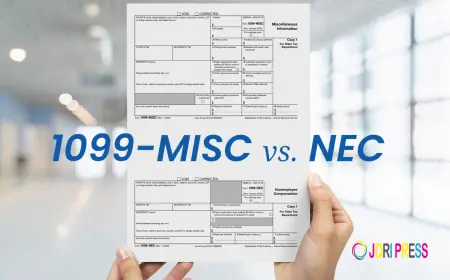Why Performance Marketing For Ecommerce Leads To Smarter Ad Spend
Learn how performance marketing for ecommerce improves targeting, testing, and ROI with data-driven ad strategies.

Ecommerce companies generally are under growing pressures to grow while keeping acquisition spend within constraints. With so many channels and platforms to advertise on, one can easily spend too much with no concrete ROI to account for it. Here is where performance marketing for ecommerce delivers a wiser solution. By tying advertising activity to definitive outcomes, companies are able to keep spending under control and make data-informed decisions to drive profitable growth.
How Performance Marketing Aligns with Ecommerce Objectives
Performance marketing for ecommerce is a methodology that pays for advertising only by tangible outcomes such as clickthroughs, leads, or completed purchases. Instead of paying for exposure or banner awareness, ecommerce retailers pay only when outcomes are obtained. Guesswork is eliminated, and marketing activities can be linked to real business outcomes with less difficulty. Focusing shifts from broad impressions to tangible actions that count to revenue.
Differences From Traditional And Brand Marketing Approaches
Most traditional media will default to preferring reach, exposure, or brand awareness, making direct returns on investment tougher to track. Performance marketing for ecommerce, on the other hand, targets campaigns that can be optimized and measured in real time. Brand marketing will build awareness slowly, but performance strategies seek short-term, tangible gains. The distinction holds particularly true within ecommerce, upon which scalable growth depends, and spending that is tightly controlled within advertisements.
Common Pitfalls In Ecommerce Advertising
Most ecommerce enterprises have suffered from inefficient spending on advertising due to poor targeting, poor campaign configuration, or fuzzy attribution. Such platforms as Meta Ads or Google Ads have huge reach but are just as reliant upon proper execution to stay within budget. If there is no performance marketing for ecommerce approach, then there is a possibility of too much spending on non-convertible traffic. Poor testing practices, default audience setup, or a mismatch of message and user intent can all cause under-performing advertising.
How Performance Marketing Solves Budget Waste
Performance marketing for ecommerce introduces responsibility into spending money to advertise. Each part of a campaign, from creative to landing page, is scrutinized to determine whether or not it stimulates the desired end result. Brands can then make changes to strategy as frequently as desired. Ad budget can be shifted out of under-performing sections and re-invested into high-performing ones. With continued application, this process forms a feedback cycle that reduces waste and maximizes return on advertising spend.
The Role Of Data And Analytics In Smarter Decisions
One of the defining traits of ecommerce performance marketing is that it is data-informed and dependent on data as a source of strategy direction. Campaign performance at various levels is measured by metrics such as cost per acquisition and customer lifetime value. Based on those learnings, there is enhanced decision-making and forecasting. Tools like Google Analytics, Meta Business Suite, and external tracking programs grant businesses data to make tests upon, iterate, and make optimizations with confidence.
Attribution Models And Customer Journeys
Attribution can play a huge part in determining which of your marketing activities are most effective. With performance marketing for ecommerce, companies can utilize first-touch, last-click, or multiple-touch attribution modeling to witness consumers interacting with differing channels prior to conversion. Such analysis can shed light on which campaigns are deserving of future investment. Budget decisions are also made with real contributions versus surface-level metrics such as clicks and impressions.
Strategic Use Of Budget Across Platforms
One of the wonderful advantages of ecommerce performance marketing is that tests can be conducted and budgets can be automatically distributed across various advertising platforms. Brands can identify where channels such as Meta Ads, Google Shopping, TikTok, or YouTube are converting best and make spending adjustments accordingly. For example, if retargeting through Instagram is converting at a higher rate than broad searches, spend can be adjusted in real time. Performance marketing is suited well to ecommerce with fast-paced trends and shifts in buyer behavior.
Benefits For Ecommerce Brands
Performance marketing for ecommerce companies generally leads to less predictable spend and higher conversions. Advertisements are more specific to user intent, and this can lead to higher engagement as well as more streams of revenue. In the long term, businesses can lower customer acquisition spend by concentrating further on high-performing segments. The process not only preserves marketing budget but also leads to sustainable scaling, even within highly competitive environments.
When To Work With A Performance Marketing Agency
While not always required, most ecommerce companies use an ecommerce performance marketing agency to manage cross-platform strategies at scale. Agencies of this type typically have specialized expertise around campaign setup, analytics, and creative testing. The relationship can help accelerate results by identifying opportunities for optimization that internal teams may not be able to see on their own. For scaled businesses, this relationship can be vitally important to efficient ecommerce advertising budget spend and to avoiding common pitfalls that can arise while scaling.
Industry Shifts And Strategic Observations
More companies are shifting investments to performance marketing for ecommerce to capture quantifiable returns from advertising. Broader shifts within the industry, like the decline of third-party cookies and the growth of first-party data, also dictate this movement. With shifts to privacy policies, performance marketing enables businesses to be agile and focus investment where results are explicit and concrete. Businesses that adopt data-driven methods are also empowered to refine targeting, expand attribution, and respond more easily to shifts within consumer behavior.
Final Thoughts
Performance marketing for ecommerce delivers a transparent results-focused method that guarantees waste is removed and growth is achieved at a higher rate of efficiency. Through data-driven pinpoint accuracy targeting and measurable outcomes, each dollar spent yields a tangible result. Whereas spending is always being scrutinized, such performance marketing guarantees that e-commerce businesses can compete, be adaptable, and focus on sustainable outcomes.
What's Your Reaction?
 Like
0
Like
0
 Dislike
0
Dislike
0
 Love
0
Love
0
 Funny
0
Funny
0
 Angry
0
Angry
0
 Sad
0
Sad
0
 Wow
0
Wow
0















































